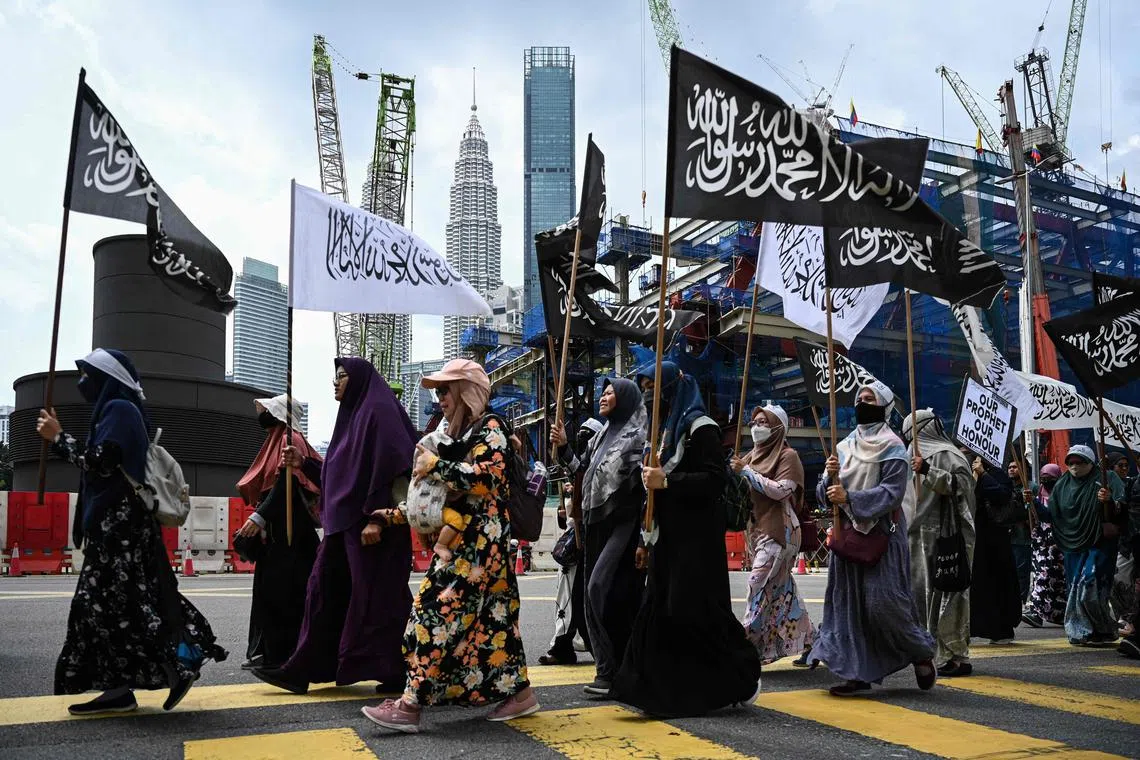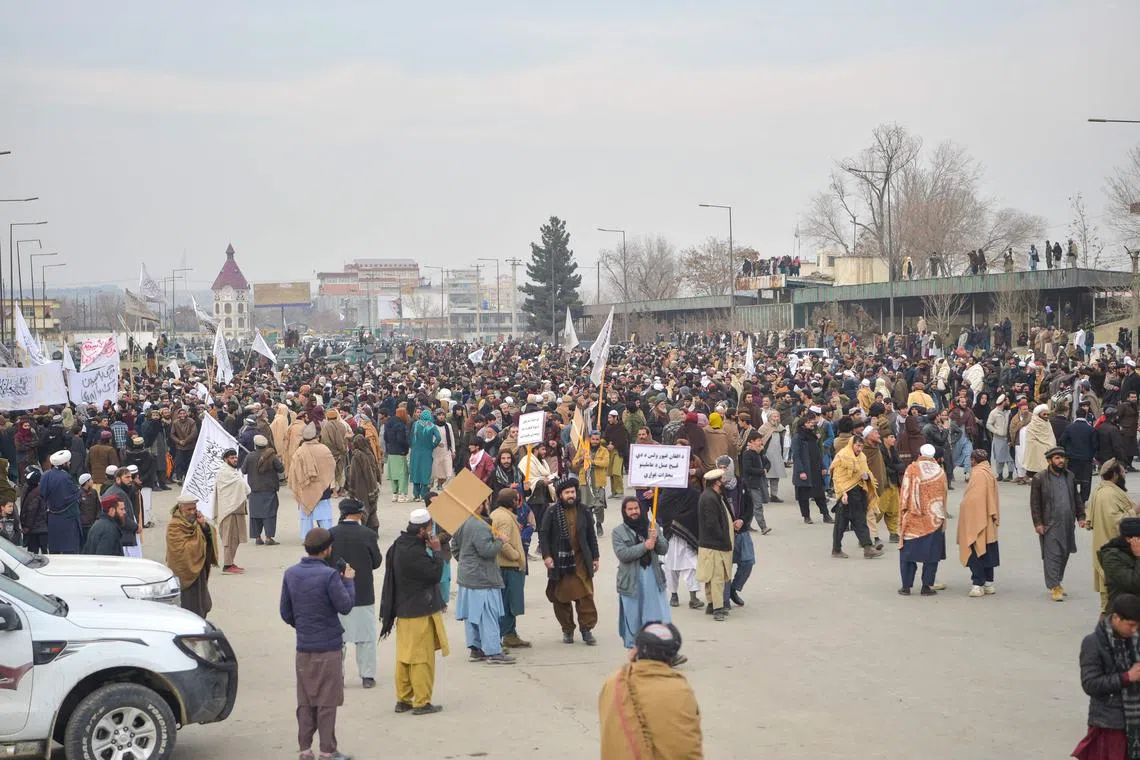Turkey summons Danish envoy over Quran burnings amid Afghanistan, Malaysia protests
Sign up now: Get insights on the biggest stories in Malaysia

People marching towards the Dutch embassy in Kuala Lumpur on Jan 27 to protest against a Dutch far-right leader who tore out pages of the Quran.
PHOTO: AFP
Follow topic:
Istanbul - Turkey summoned Denmark’s ambassador on Friday to condemn Copenhagen for allowing a far-right extremist to burn copies of the Quran over Ankara’s refusal to let Sweden and Finland join Nato
Anti-Islam activist Rasmus Paludan, a Danish-Swedish dual national, first burnt a copy of the Muslim holy book
A decision by Swedish police to allow Mr Paludan to stage a similar protest in Stockholm prompted Turkey to postpone planned Nato accession talks with Sweden and Finland.
The US and French embassies in Ankara warned their citizens of an increased risk of reprisal attacks in Turkey.
“In the wake of recent Quran-burning incidents in Europe, the US government cautions its citizens of possible retaliatory attacks by terrorists against places of worship in Turkey,” said the US embassy.
“Terrorists could attack with little or no warning, targeting places of worship or places Westerners frequent,” the embassy added, urging people to stay alert and avoid crowds.
The French embassy sent an email telling its citizens in Turkey to be “highly vigilant” and underlined the US warnings.
A Turkish diplomatic source on Friday said the Danish ambassador was summoned in a protest against his country’s “unacceptable” attitude towards Mr Paludan’s actions.
“We strongly condemn the decision to grant permission for this provocative act, which clearly constitutes a hate crime,” the Turkish diplomatic source told reporters.
‘Open democracy’
Danish Foreign Minister Lars Lokke Rasmussen confirmed the envoy had been summoned. He said Copenhagen enjoyed “good relations with Ankara – and this doesn’t change that”.
“Our job is to explain to Turkey the conditions that prevail in Denmark with our open democracy, and make them understand that there is a difference between Denmark as a country – our people as a whole – and individuals who hold a wide range of views,” he said.
Mr Paludan vowed on Friday to stage weekly actions involving the Quran until Turkey approves Sweden and Finland’s Nato membership.
Swedish leaders have strongly condemned Mr Paludan’s action but defended their country’s broad acceptance of free speech.
Finland’s Foreign Minister hinted that Russia may have been involved in the Quran-burning protest.
Mr Paludan’s potential ties to Russia have “been investigated and certain connections in his vicinity have been found”, Mr Pekka Haavisto said in a television interview on Saturday, stopping short of confirming Russian involvement.
It “raises the question of whether some third party is seeking to stir the pot – for example Russia – or some other party opposing the Nato membership and looking to provoke to achieve that. This is unforgivable”, he added.
Thousands in Afghanistan protested in the capital Kabul on Friday to express anger at the burning of the Quran in Sweden on Jan 21.

Protesters marching in Kabul on Jan 27 to express anger at last week’s burning of the Quran in Sweden.
PHOTO: AFP
Earlier in the week, the Taliban-run Afghan foreign ministry had called on the Swedish government to punish the individual and to prevent any similar incidents taking place.
In Kuala Lumpur, hundreds of people marched to the Swedish embassy after Friday prayers in protest against the same act in Sweden. The protesters were mostly Parti Islam SeMalaysia members and led by leaders from the political party and its Perikatan Nasional coalition partner, Parti Pribumi Bersatu Malaysia.
They gathered at the KLCC mosque and marched to the Swedish embassy about five minutes away in Hampshire Park.
Last Monday, the Malaysian government demanded that Sweden take stern action against the perpetrators and also address the alarming rise of Islamophobia in the country.
In 2022, Finland and Sweden broke with decades of military non-alignment and applied to join Nato
Bids to join Nato must be approved by all 30 members of the US-led military alliance. Turkey and Hungary are the only members that have yet to ratify the two applications by votes in Parliament. Hungary’s Parliament is expected to ratify the two bids in February. AFP

